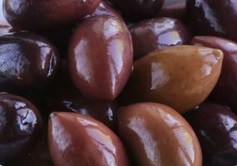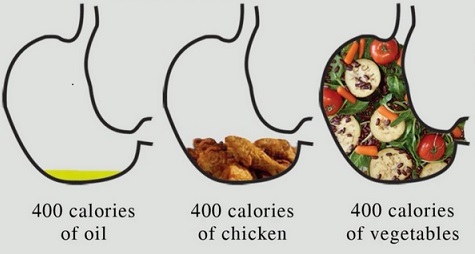Fat versus Oil
When I tell people about our new way of eating one of the first things they say, or questions they ask, is in regards to oils. Not fats, oils.
Fat, as a word itself, can have a negative connotation and over the years we have been sold a bill of goods by the "food oil industry" that oils are necessary in our diets.
A sweet lady who works at my local library asked me just a couple of weeks ago.... "don't we need to eat oil so that our skin is soft and moist?". And who has done a better job recently than "big coconut" lol to convince us that coconut oil is not only healthy for us but is necessary for us to consume for ultimate health.
First it was peanut oil, which became popular during World War II because of a shortage of other oils, and then we were convinced that olive oil is the best oil to consume.
Coconut oil's popularity is relatively recent in North America and prior to our lifestyle change we were eating a lot of it, especially with eggs. I never quite understood why, when it was supposed to be so good for me, I felt slightly nauseous after eating my over easy eggs in coconut oil because it tasted so good, especially when sprinkled with my turmeric/pepper mixture. I researched why coconut suddenly became "healthy" and found an article that states:
- https://www.statnews.com/2017/06/20/coconut-oil-reputation-healthy/
"the work of Marie-Pierre St-Onge, a professor of nutrition at Columbia University. Two papers published by St-Onge’s group in 2003 showed that eating and cooking with medium chain fatty acids — a type of molecule found in coconut oil — can help dieting adults burn fat. Study participants ate specially prepared meals rich in medium chain fatty acids for four weeks. MRI and metabolic data showed that medium chain fatty acids reduced their overall fat levels and helped dieters burn energy.
But, St-Onge points out, coconut oil is only 14 percent medium chain fatty acids. Participants in her studies received 100 percent medium chain fatty acids, a custom-made concoction.
Still, in subsequent years that research has been seized upon by health food marketers. Dieting blogs praise coconut oil as a “fat-burning diet miracle” and dietary supplements containing the oil advertise their supposed weight-loss benefits on the label.
“I think the data that we’ve shown with medium chain fatty acids have been extrapolated very liberally,” said St-Onge. “I’ve never done one study on coconut oil.”
While I was writing this, I happened on a new article today... Coconut oil health claims not all they're cracked up to be, says report ‘Hype is ahead of the evidence,’ says Calgary dietitian, discussing American Heart Association review. "If you've been stirring coconut oil into your coffee or cooking with it every day, a Calgary nutritionist says you should heed a new warning by the American Heart Association (AHA)." http://www.cbc.ca/news/canada/calgary/coconut-oil-study-health-heart-disease-saturated-fats-1.4169540
Cooking without oil, vegan oil or not, is a concept that most people just can't imagine. How would you do a stir fry? what about my garlic and onions? or my vegan burger "it says to put oil in the pan".
For more about the history of the rise in 'healthy' oils you can read this article by leangreendad:
- http://leangreendad.com/2017/05/18/oilisbad/
- It all started back in the 1950’s. This whole thing started with a Russian researcher named David Kritchevsky. See, back in 1954, David posted two papers on fats. The first paper discussed the effects of feeding cholesterol to rabbits. In his experiment, he added a cholesterol molecule to the food of these vegetarian rabbits. What did he conclude from studying the rabbits before and after the change to their food? Well, he concluded that when cholesterol was added to vegetarian rabbit chow, it caused the formation of plaques (also called atheromas) in the heart. This lead to clogged arteries and, over time, heart disease. At that time, the only place to find this type of cholesterol was in meat, cheese, eggs, and butter.
So back to the difference between fat and oil. Fat is a necessary part of our diets, our brains need it, our organs needs it, we need it to stay warm, to help absorb nutrients and to produce important hormones. The are a variety of opinions on the amount of fat needed, on a daily basis, most experts opinions range from 10-20% of our calories, depending on our health situation and whether we are trying to increase our weight or reduce it. People with already clogged arteries may need to limit their fat intake for a period of time. Always consult a medical professional before making any drastic changes! preferrably a plant-based one if you can.
So why not oil? If you haven't already read the article referenced above by leangreendad then I will quote more from his article rather than reinventing the writing wheel:
Let’s talk about how this stuff is made. First, it takes approximately 1,000 olives that are pressed and squeezed and smashed to release all of their oils…to make just one liter of olive oil. So what’s left behind when you squeeze all the fat out of the olive? Fiber, antioxidants, nutrients, and everything else that goes along with eating an olive to keep you healthy. You are so much better off eating the olive itself, rather than eating the extracted saturated fat from it. But here’s what you don’t see on your oil label. When the oil is being processed, it is hydrogenated. What does that mean? It means that it is heated under pressure to not only increase its shelf life, but also to help it stay more stable under high heat. What happens to oil under high heat? It turns to trans fat. Trans fat is also known as trans fatty acid, or it’s popular shelf name, partially hydrogenated oil.
and then goes on to quote from Rip Esselstyn's book:
In his book “Plant Strong,” Rip Esselstyn quotes Dr. Ray Peat, who says, “All oils, even if they’re organic, cold-pressed, unprocessed, bottled in glass, and stored away from heat and light, are damaging.” This goes for coconut oil too. Stay away from it all. It is all a concentrated source of saturated fat that is laden with calories that will contribute to obesity and heart disease.
Much of what I have learned about the dangers of too much oil in our diets comes from watching Dr Michael Greger's research videos and here are a few of them if you have time to watch:
- https://nutritionfacts.org/video/olive-oil-and-artery-function/
- https://nutritionfacts.org/video/does-coconut-oil-clog-arteries/
- https://nutritionfacts.org/video/does-coconut-oil-cure-alzheimers/
- Kalamata olives - 4-tablespoon serving of Kalamata olives, roughly 8 large olives or 10 small ones, has 39 calories per serving, negligible amounts of protein, 3.6 grams of total fat and 1.1 grams of dietary fiber
- Olive oil - 1-tablespoon serving has 120 calories, 14 grams of fat and no fibre and few/if any other nutrients
- Generally it takes over 1,000 olives weighing between 4 and 8 kilograms to make one liter of extra virgin olive oil. A large tree can yield enough olives to produce five 1 Liter bottles of olive oil.
- a plant-based diet that reduces or eliminates all animal foods like meat, dairy, and eggs PLUS has the addition of starch, so that you feel full and satisfied
- include grains like rye, wheat, barley, oats and corn; starchy vegetables like squash, potatoes, and sweet potatoes and legumes like red and brown lentils, chick peas, green peas, and lotsa beans like pinto, kidney AND lots of fresh fruits and vegetables
- reduces or eliminates added oils, including coconut, olive and peanut and reduces added sugars and salts
- it is believed Dr T Colin Campbell coined the term "whole food, plant-based" and Dr John McDougall the term "starchivore"

This is another comparison that always astounds me:

This picture leads to a whole discussion of satiety (or feeling full after eating) which I will leave for another day.
So back to the question that sparked this article - my librarian asking me if we need oil for our skin. Oil is not hydrating, water is hydrating. We need to consume water and some fats in their original form in food. There are fats in avocadoes, olives, beans, nuts, seeds, whole grains and as skin care from the outside is highly personal I am not going to comment on that as it is a whole topic on its own.
There are a number of videos out there that talk about the incidence of heart attack and strokes and other diseases in some vegetarians and vegans that are more common to meat eaters.... IMO it is related to the amount of oil consumed, the amount of 'fake vegan' meats and cheeses that are consumed as they are so high in oils and in soy isolate proteins and all manner of other unpronouceableable ingredients that they are not really eating a healthy diet just because it is labelled vegan. Should we allow ourselves some of these foods? of course! but a steady diet of fake food is exactly that, fake food and our 'whole' bodies would prefer whole food plant-based options with minimal added oils/salts/sugars.
As I have mentioned before I watch a lot of YouTube, mostly vegan, and when I watch someone new and they pick up the oil to cook with... the stop button is pushed immediately. There are too many great "what I eat in day" videographers that don't cook with oil to waste any time watching those that do.
So how do I cook without oil? in non-stick pans with the vegetables natural liquids and the lid on, or I add a bit of vegetable stock, or olive brine, or lemon juice or just plain water. I use parchment paper. I add mushrooms to lots of stir fries and they provide lots of moisture. I bake root vegetables, and onions and garlic too sometimes. I read labels and try to buy as few processed foods with oil in them as possible. There is really little reason to use oil as a vegan or vegetarian or starchivore or whatever label you prefer. Challenge yourself to cut back and your body will thank you.
SpiritualMatchMaking.com is the main sponsor of this website. Are you looking for a low fat vegan option in a partner? Be sure to take a moment and visit the site and see what new friends might be out there for you.

Starchivore Whole Food Plant-Based Lifestyle
Definition:

Looking for a soulmate that lives a plant-based whole foods lifestyle? or a vegan or a vegetarian? Visit our sponsor SpiritualMatchMaking.com.